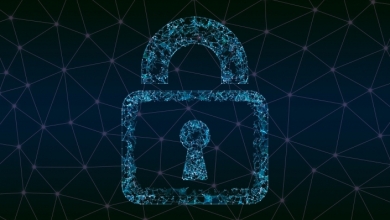
$6 billion-revenue information management vendor OpenText has reassured the channel it is with it, as it continues its cloud and AI services strategy.
The company was in London yesterday as part of its OpenText World Europe string of events, which are continuing in Munich from today, and Paris later this week.
The London event at the Queen Elizabeth II conference centre in Westminster was attended by hundreds of OpenText partners and customers, who were introduced to the firm’s next major update to its cloud services, where AI, like at most other vendor events these days, played central stage.
Cloud Editions (CE) 24.2 marked the next step in the vendor’s Titanium X initiative, which was first announced in 2022. Titanium X represents a strategic product roadmap to provide a common platform for consuming all OpenText software and services through the cloud. The company says it “innovates every 90 days” as part of the roadmap, and the “common platform” will be in action by the time we see version CE 25.2 next year.
At a briefing yesterday, OpenText CEO and CTO Mark Barrenechea (pictured), told IT Europa that between 7% and 9% of all new company revenue would be organic and cloud-related “within two years” from now. That may not sound massive, but that’s after OpenText swallowed up Micro Focus in an acquisition worth $5.8 billion. That major deal was completed in January 2023, and since then the company has been integrating the two companies’ products. Prior to this deal, the company had also been involved in a number of other significant acquisitions, watering down the organic level of new sales further.
In the first quarter of the current financial year, the company reported revenue of $1.42 billion, with $451m of it being “cloud revenue”, illustrating the fact many of OpenText’s customers still run its software as on-premise deployments, and often through traditional licensing contracts. So even when the new “common platform” arrives, not everyone will be using it exclusively.
On partners, and how OpenText keeps them in the loop in a fast moving software development cycle, Barrenechea said: “We have a five-pronged ninja star model to support partners as we innovate every 90 days. The likes of Microsoft, Oracle, Google and AWS are our strategic partners, next we have security managed service providers, then value-added resellers, also those partners with embedded IP, and dedicated resellers.
“The strategic partners will test new products and services first, but they, and the others, don’t all have to consume everything we introduce straight away. We have a wheel everyone can be served by at a time that is convenient for them.”
In his morning keynote to conference attendees, the CEO maintained that organisations should not delete any data, that they had to keep it all for the benefit of the business. With Barrenechea also espousing the AI and ESG (environment, social and governance) credentials of the firm’s latest software, was this not contradictory?
He said: “Time stamp your data, tier it, manage it. But, conceptually, yes, don’t delete anything, ‘delete’ is the worst command in IT. We have to manage data and address sustainability, but keep everything.”
He didn’t deny this may well mean that everything eventually ends up on a backup/archive tape in a basement somewhere. But his message was a good one for data cloud storage providers, disk storage manufacturers, and, indeed, tape manufacturers.
On the question of AI, he was also clear that partners and customers should not see OpenAI and ChatGPT as any sort of strategy for their AI efforts. “You don’t want your source code and IP in there. Enterprises have to develop their own large language models (LLMs) to generate their AI privately, and to not share it with anyone – maybe we need a delete button in some public AI models,” he joked.
There have been industry reports about some organisations delaying their AI development, because of uncertainties around the technology. Barrenechea maintained there “was no delay in private AI development”. “Maybe there are pauses in public AI testing and product development”, he added.
In his keynote, he said: “AI is a force multiplier for human potential”, while he also quoted Agent Smith from The Matrix in 1999: “Never send a human to do a machine’s job.”
He emphasised: “Unlock human potential, let the machines do the work. There will be thousands of LLMs that will be specific to business verticals - it won’t be about ChatGPT.”


